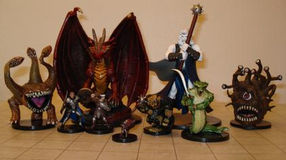It's Okay to Have a Happy Ending
- Caity Kelly
- Mar 28, 2018
- 3 min read
"People tend to dwell more on negative thoughts than on good things. So the mind then becomes obsessed with negative things, with judgments, guilt, and anxiety produced by thoughts about the future and so on."
-Eckhart Tolle, Spiritual Author

I've always had a love-hate relationship with my literature classes. On one hand, I relish deeply analyzing creative pieces of writing and picking out unique interpretations of symbolic content or finding the real world relevancies of seemingly unrelatable stories. In fact, one of my favorite college assignments was a paper I wrote about Edgar Allen Poe's "The Fall of the House of Usher" (Shameless Plug: Check it out under the "My Writing" tab on this site!).
On the other hand, however, I have despised most of what is considered "Quality Writing" by English and literary scholars. Stories about suicide, abuse, addiction, depression, and overall misery seem to pervade the world of literature. I am not referring to gothic stories--pick any one of Poe's pieces--that are expected to be stylistically dark, melancholy, and grotesque in a way that is picturesque. No, I am talking about works which feature the worst facets of the human race through unlovable characters and almost always end on an utterly hopeless note.
Now, this blog post is not meant to slam any particular story or author; thus, I will not mention any particular piece in my critique. Moreover, from a writer's standpoint, I do admire the entrancing descriptions and powerful voices of such stories. Such enthralling techniques draws the reader in and makes him or her feel as though she can hear, see, smell, taste, or feel the content of the piece. This is skill, without a doubt. Yet, I cannot help but pose the following question:
Why do we exalt writing that is riddled with pain over skillfully-crafted writing that contains joy, triumph, hope, or healing?

Consider some of our most revered authors--Jane Austen, Charlotte Bronte, Mark Twain--and their iconic works of literature. Did their writing depict hardships? Yes. Intricacies of human nature? Of course. Personal failure and growth? Absolutely. Even lesser known pieces, such as "The Nose" by Nikolai Gogol, find ways to explore daunting aspects of human nature and social constructs without plunging their entire creative world into despair (If you are interested, you can read/support his story here: http://www.yorku.ca/creet/satire/documents/thenose.pdf.)
To be clear, I do not deny the value and enjoyment of stories that feature powerful struggles among their characters. Moving beyond the world of literature, we can look at some of the most renowned video game stories: The Last of Us, Metal Gear, Assassin's Creed, Kingdom Hearts (Find them here: https://www.playstation.com/en-us/explore/games/ps3-games/?console=ps3). All of these vastly diverse RPG's have 2 things in common--Powerful character development through hardship and endings full of hope and learning.
We read literature and become engrossed in amazing stories because they give us a framework to examine and discuss phenomena that occur in our everyday lives. If you have read my "Baby Steps Out of the Comfort Zone" post, you will know that I advocate the concept that new experiences do not have to be overwhelming to be valuable. Likewise, a good story does not have to be bleak to facilitate worthwhile thoughts or discussion.
Let us consider this concept before we judge a story as being "too fluffy" simply because it has a happy ending.



Comments